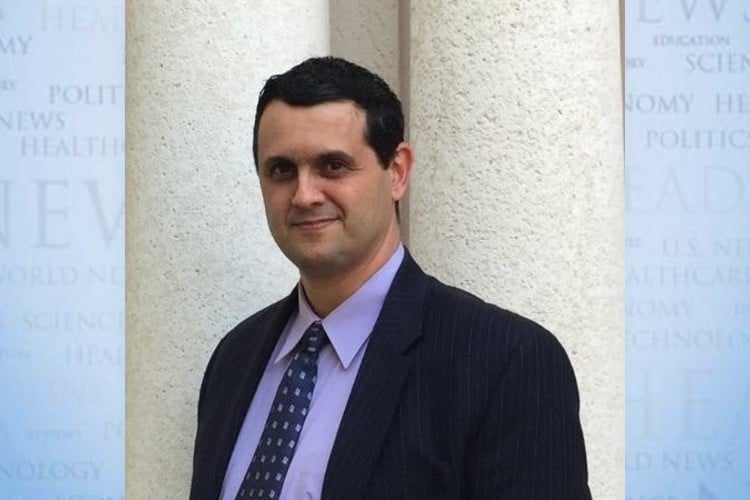
During a recent interview on CBS’ Face the Nation, Vice President Kamala Harris warned Americans that if Congress didn’t pass the Democrats’ various voting bills, the United States would be “kicked down off its pedestal.” Harris has it all wrong, as just the opposite is true. If Congress fails to pass the various voting bills, Congress will be protecting law, order, and the Constitution, which are the hallmarks of this great nation.
According to Harris:
We have been a role model saying, “You can see this and aspire to this and reject autocracies and autocratic leadership.” Right now, we’re about to take ourselves off the map as a role model if we let people destroy one of the most important pillars of a democracy, which is free and fair elections.
Harris is undoubtedly referring to the Democrats’ major voting-rights bills, which include H.R.1 (the “For the People Act”) and the John Lewis Voting Rights Advancement Act. Both bills attempt to federalize the election process and to take away powers from the individual states. In a recent article for the Heritage Foundation, Hans A. von Spakovsky noted some of the major problems associated with H.R.1:
H.R. 1 would make things much worse, usurping the role of the states, wiping out basic safety protocols, and mandating a set of rules that would severely damage the integrity of the election process.
H.R. 1 would mandate same-day and automatic voter registration, and encourage vote trafficking of absentee ballots. It would eviscerate state voter ID laws and limit the ability of states to verify the accuracy of their voter registration lists. This would institutionalize the worst changes in election rules that occurred during the 2020 election. But H.R. 1 would go even further in increasing the security weaknesses inherent in the current “honor” voter registration and voting system that exists in states across the country.
Along these same lines, the John Lewis Voting Rights Advancement Act would amend the Voting Rights Act and grant members in the Justice Department the power to veto changes in state election laws, including voter registration laws, voter ID requirements, and laws regarding the maintenance of registration lists. In other words, it would compel states to obtain “preclearance” from the federal government before making any changes to their election laws.
Harris seems to consider objections to these bills as an effort to destroy the right to free and fair elections. She is sorely mistaken in this regard. Notably, one objection to these bills is based, in large part, on Article I, Section 4, Clause 1 of the Constitution, which states:
The Times, Places and Manner of holding Elections for Senators and Representatives, shall be prescribed in each State by the Legislature thereof; but the Congress may at any time by Law make or alter such Regulations, except as to the Places of choosing Senators.
This provision of the Constitution authorizes the individual states, not the federal government, to decide the time, place, and manner for holding elections. This provision also permits Congress to make or alter such regulations at any time by law. H.R.1 and the John Lewis Voting Rights Advancement Act appear to represent such efforts on behalf of the Democrat-controlled Congress.
To justify such efforts, Harris and many of her colleagues on the Left argue that such bills protect against so-called discrimination, which thereby leads to voter suppression. For example, some on the Left claim that voter ID requirements discriminate against minority voters and prevent them from voting.
However, in a separate article for the Heritage Foundation, von Spakovsky discredits this argument. Citing his testimony to the Senate Judiciary Committee’s subcommittee on the Constitution, he stated:
The claim that there is a wave of voter suppression going on across the country that requires expansion of the [Voting Rights Act] is simply false. Efforts to enhance the integrity of the election process through reforms such as voter identification requirements and improvements in the accuracy of statewide voter registration lists are not voter suppression.
On voter ID, for example, the data is clear that such a requirement does not prevent any eligible individuals from voting and yet the proposed legislative reforms treat it as a suspect, discriminatory practice. A 2019 survey of 10 years of turnout data from all 50 states found that state voter ID laws ‘have no negative effect on registration or turnout, overall or for any group defined by race, gender, age, or party affiliation.’ Voter ID laws are in place in numerous states like Indiana, Georgia, Alabama, Tennessee, South Carolina, Wisconsin, Kansas, Arkansas, Mississippi, and Texas because courts agreed they are not discriminatory and do not represent a tangible burden on voters.
We have also seen evidence of this in the steady increases in registration and turnout in states that have implemented much-needed election reforms intended to improve access, integrity, and security, as well as in the steady decrease in the number of enforcement cases being brought by the Justice Department due to a decreasing number of violations of federal law.… During the entire eight years of the Obama administration, the Civil Rights Division of the Justice Department filed only four cases to enforce Section 2 of the VRA [Voting Rights Act].
Von Spakovsky also referenced the Census Bureau’s 2020 election survey of voter turnout, which further demonstrated that no “voter suppression” occurred and that no amendment to the Voting Rights Act was warranted.
These voting bills have nothing to do with achieving free and fair elections. They never did. As a matter of fact, many of those pushing to pass these voting bills in Congress don’t want “free and fair elections” in the traditional sense, but elections where the rules are controlled by the federal government and where “anything goes.” They are many of the same people who support other radical ideas such as eliminating the filibuster, packing the Supreme Court, eliminating the electoral college, and allowing non-citizens to vote.
The refusal to support such laws is not anti-American. To the contrary, it is patriotic, noble, and brave. Contrary to Harris’ claims, the refusal to pass such one-sided voting bills will not bring down the United States but will show the world that the United States is a nation that cherishes law, order, and the Constitution. States should continue to pass tighter voting laws that protect election integrity.
In doing so, the nation can continue to stand tall, proud, and above all other nations on that pedestal!





